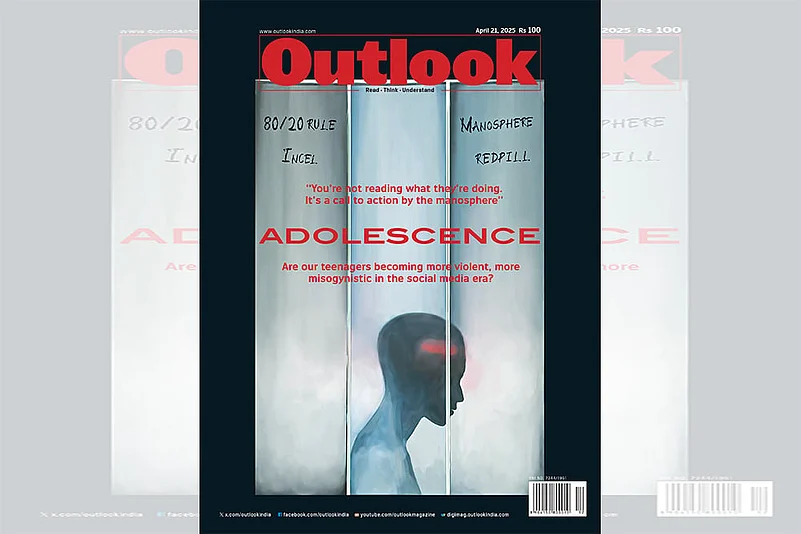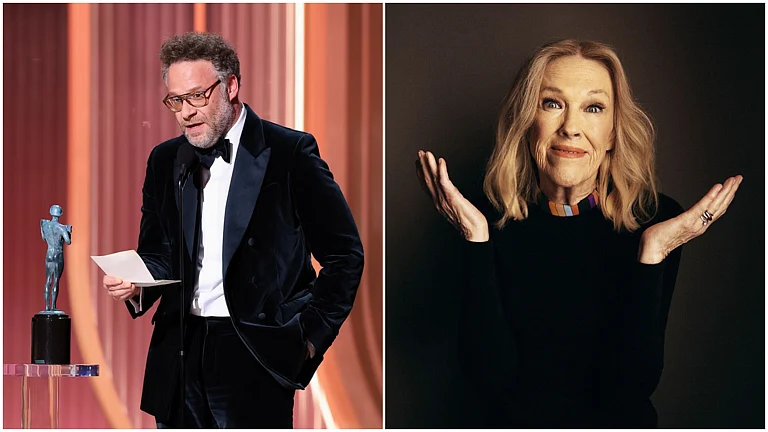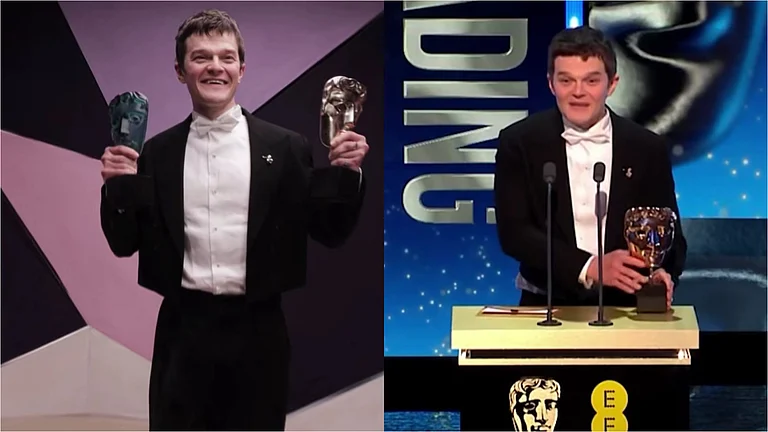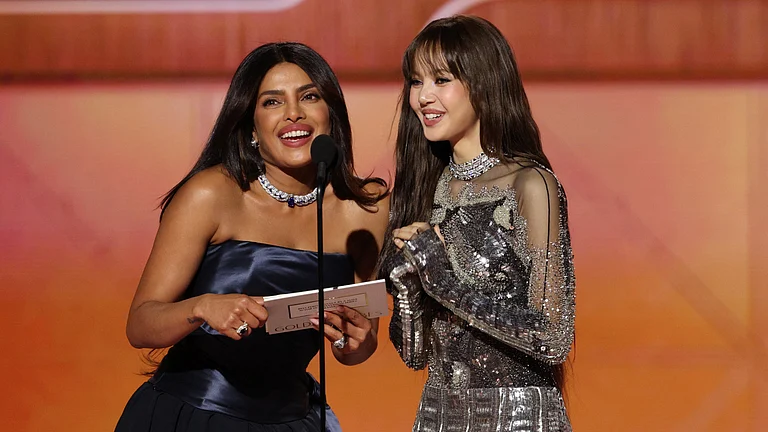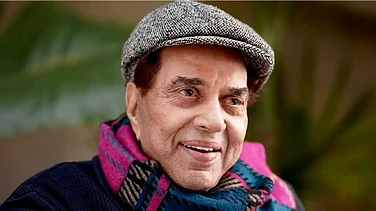
Summary of this article
Netflix’s Adolescence sweeps the 83rd Golden Globe Awards with 4 wins for television, including Best Supporting Actor and Best Actor.
The series explores the “manosphere”, portraying how online misogyny and male grievance culture fuel violence.
We revisit Outlook’s April 2025 issue, framing Adolescence as not just a drama but a cultural mirror.
After its big sweep at the Emmys, Netflix’s Adolescence has now taken over the 83rd Golden Globe Awards in the television segment. The award ceremony took place on January 11 in California.
Owen Cooper has won the Best Performance by a Male Actor in a Supporting Role on Television for his haunting portrayal of Jamie Miller, a teenager who kills his classmate. Winning this award at just 16, Cooper has now become the youngest winner of the Golden Globe award, after being the youngest male performer to win an Emmy last year. Stephen Graham, playing Jamie’s troubled father Eddie Miller, added to the show’s triumph by winning Best Actor in a television Mini-series. Apart from this, Adolescence won the Best Television Limited Series award and Erin Doherty won the Best Performance by a Female Actor in a Supporting Role on Television.
The accolades affirm what audiences already knew: Adolescence is more than a drama. It is a disquieting reflection of a cultural sickness—one rooted in the dark alleys of the online “manosphere,” where influencers like Andrew Tate feed boys and men a steady diet of grievance, misogyny, and rage.
In April 2025, Outlook’s issue “Adolescence” unpacked the real-world anxieties that shaped the series. At its heart was Katie—a girl we never see on screen but never forget. She is 13, she says no, and she is punished for it. Her rejection fuels Jamie’s violence, violence nurtured not only by his loneliness but by a digital ecosystem that insists women deserve retribution for exercising choice.
Katie is not just a character; she is every girl who has been mocked, dismissed, or endangered for daring to live on her own terms.
In her intro to the issue, Editor Chinki Sinha wrote about how the manosphere thrives on painting women as inferior, selfish, or manipulative, and boys as victims who must reclaim lost ground. Though research into its impact is still limited, its influence is unmistakable— shaping mental health, politics, and pop culture alike. What we once believed was hard-won equality now feels fragile in the face of this backlash.
Adolescence doesn’t let us look away. It takes the anger simmering in forums and videos and places it in a small town, a family, a schoolyard. It shows us the cost when boys like Jamie internalise these messages, and when girls like Katie pay with their lives.
This is why the series resonates—and why it matters that it has been recognised across globally prestigious award ceremonies. Awards cannot undo the pain or the cultural fractures that inspired the show, but they can remind us to keep looking, to keep listening.
In the issue, Priyali Sur wrote about the struggles to raise a son in a toxically patriarchal society. We need to create safe spaces at schools and homes where frank conversations can happen without judgement, she wrote.
Dr Manjula Pooja Shroff wrote about the dangers of children excessively using smartphones, saying it will disrupt their sleep patterns and increase the risk of depression, self-harm and suicidal thoughts. Outlook's Managing Editor Satish Padmanabhan, too, pointed out the dangers of over-reliance on screen time calling smartphones and teenage angst a lethal combination.
Avantika Mehta went down the Manosphere rabbit hole undercover as a teenage boy and discovered that beneath the toxicity and anger were young men without a clue about understanding, empathy, and friendship.
Apeksha Priyadarshini reviewed the show from a technical standpoint. Adolescence exposes the deepest, darkest corners of incel culture, male rage, masculinity, manosphere, teenage violence and social media … one long shot at a time, she wrote. Debanjan Dhar wrote about the nightmarish ecosystem of the school in the series and how most of the students are all perfectly capable of tipping over the edge, while Jamie just happened to take the plunge. He also took the Andrew Tate course to explain how an existentially threatened masculinity uses misogyny as a punching bag.
Tatsam Mukherjee, meanwhile, wrote about how the show Adolescence deals with a parent’s worst fear—What if we’ve given birth to a criminal? There’s no real manual to parenting. How does one keep an eye on their child, without suffocating them and pushing them away, he asked.
Avnita Koshy-Sukhija explored whether society rewards subjugation and how Adolescence left most of its viewers shocked and schools and news channels are amplifying the conversations that the series managed to start.
Lakshmi Narsimhan and Aishwariya Ramesh from the banyan wrote about how modern adolescence frequently involves infantilisation coupled with segregation into age-specific subcultures divorced from meaningful adult interaction or participation in social production and governance.
Debiparna Chakraborty wrote about how Bollywood's narratives and songs have allowed misogyny to thrive for decades while Vineetha Mokkil collated accounts of parents, psychologists and experts on how teenagers are expected to stick to a certain normative script of masculinity across the length and breadth of the country.
Rashmi Verma wrote on school reformation and how schools have a duty to equip girls with the emotional and intellectual resources needed to confront misogyny.


